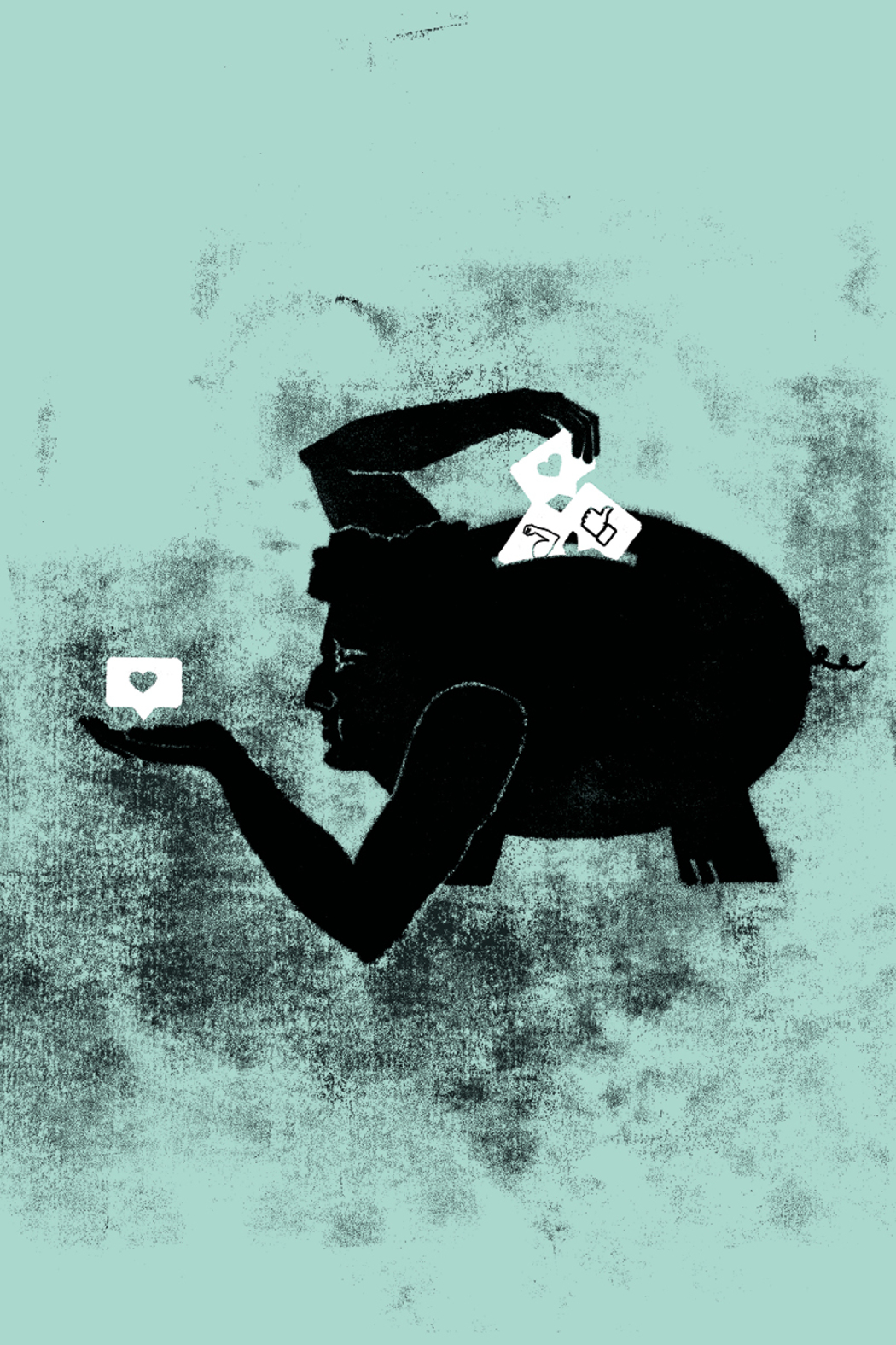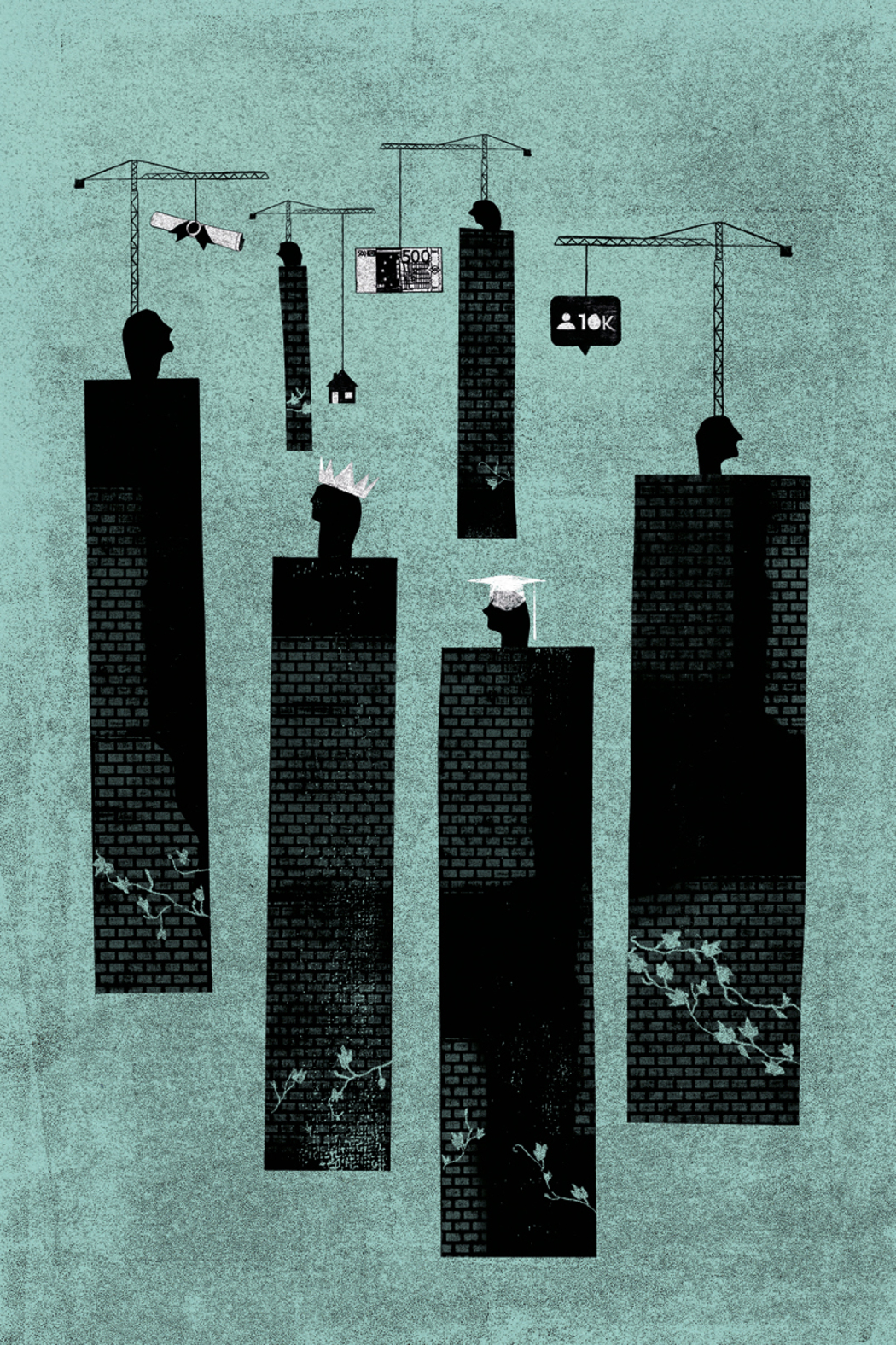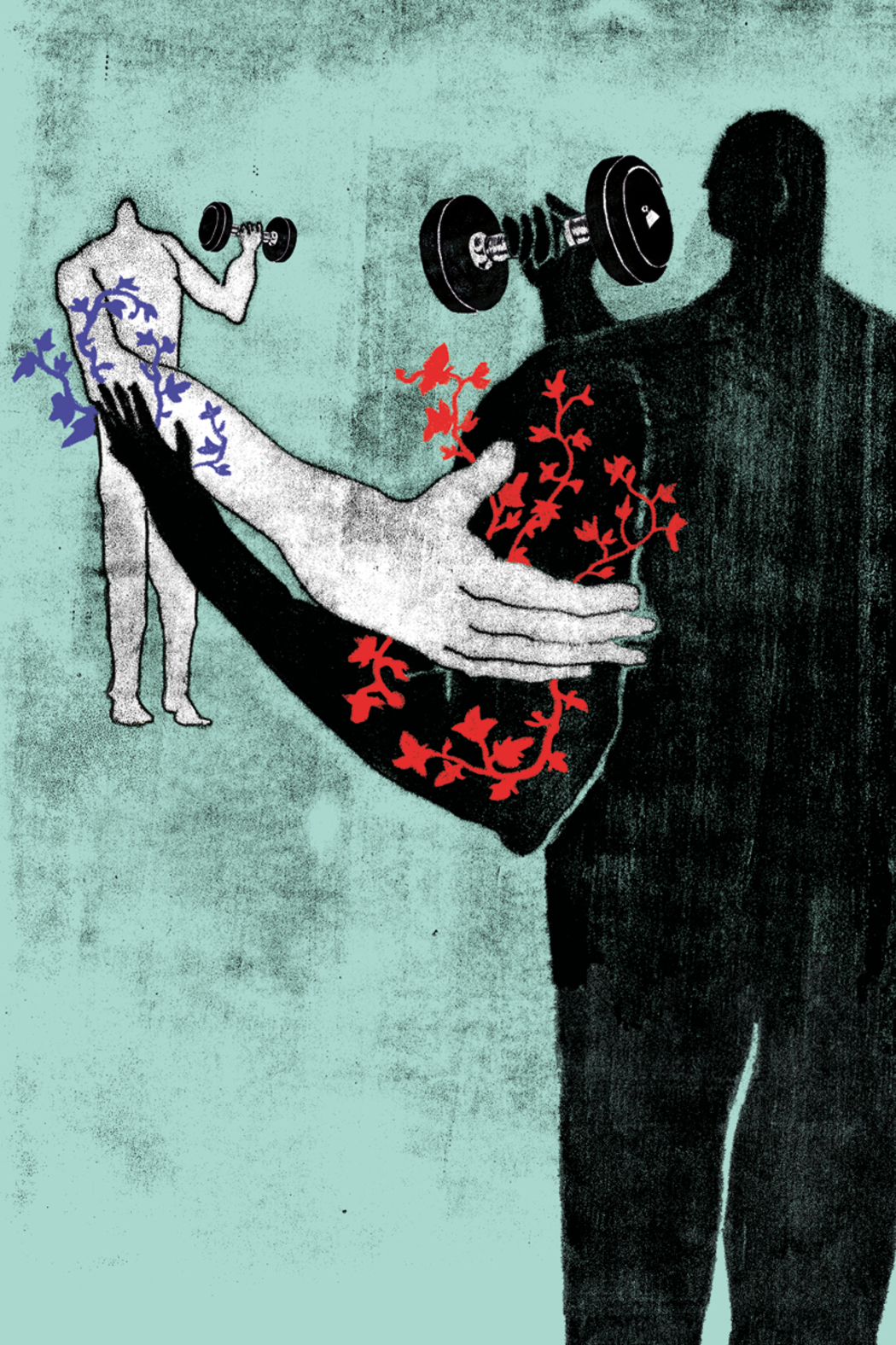Hiurma Delgado
Where do you live: I live in Barcelona
Your education: I studied technical studies related to architecture, graphic design and
packaging. Over time I studied illustration, which is what I always liked. Two
years of illustration at Escola Massana and one more year of illustration at Cifo
l’Hospitalet
Describe your art in three words: Powerful, reflective and conceptual
Website | Instagram
 Hiurma Delgado, Limits in social and personal relationships, 2024
Hiurma Delgado, Limits in social and personal relationships, 2024
Your work focuses on social and personal relationships, particularly the limits imposed by society on individuals. What inspired you to explore this theme in your art?
My art is often a way of expressing myself, talking about issues that concern or interest me, and encouraging others to reflect on them as well. That’s why I tackled this topic—because it was something I observed in people every day, and it gave me a disturbing feeling.
In your statement, you discuss the system that promotes individualism and self-help remedies. How do you see this affecting people’s ability to form meaningful connections?
Well, you have to be strong, you have to be the best, you have to be independent and not need anyone for anything. You have to be positive; you are who you are, and others put up with it. You make your decisions as an individual without thinking about how it affects your environment. You usually think about yourself and how you feel before anything else or anyone else. It’s easier to replace relationships than to strengthen or heal the ones we already have. The most important thing is our goals. In that concentration on oneself, the values that generate meaningful relationships are lost. It’s an imbalance that doesn’t make us happy because, as human beings, we need a network of healthy relationships in our lives. It’s okay to be independent and all those things, but with balance, without losing the values that allow us to generate and take care of our ‘social ecosystem.’
 Hiurma Delgado, Limits in social and personal relationships, 2024
Hiurma Delgado, Limits in social and personal relationships, 2024
Could you share more about your creative process when working with the monotype technique? What challenges and rewards does it offer?
Monotype is a technique that has hooked me. Ever since I started studying art, I have been working on embracing imperfection because I actually love it. It’s just that we learn to get rid of it as we grow up and ‘learn to draw well.’ Monotype was a real discovery for me in this sense. It allows me to work in an environment of imperfection where unexpected stains and textures reign all over the paper. I have fun, I have a great time, and it shows in the final result, which doesn’t put so much pressure on me.
How do you approach using color in your work? Are there any particular colors you feel drawn to when exploring themes of isolation or connection?
The use of color is very important to me. I like to mix things that are unusual and go beyond the established canons. However, I don’t always do it because, at the end of the day, I have to take into account the culture of the people who are going to interact with my work, especially when the message I want to convey is a subject that is perhaps a bit delicate or reflective. For example, in this case, I wouldn’t have used a red background because I think it wouldn’t have helped me communicate the message, but perhaps in another culture it would. I was testing various colors, some more desaturated and warm, until I felt that this was the right color. So, when I can, I allow myself to do crazy things with color, but on other occasions, I treat it very delicately so that it helps me convey what I want.
Humor and critical attitudes are sometimes present in your work. How do you decide when to incorporate humor, and how does it help convey your message?
Sometimes I come up with humorous ideas when I’m thinking about how to approach a job, but I don’t decide right away. I make sketches and try to think of other paths as well. After a few days, I realize whether humor is appropriate or not because it gives me time to reflect on whether it’s a very delicate subject and how it might affect people who feel alluded to. Of course, there are subjects in which it’s not necessary to think about this. But nowadays, it seems very difficult to make this decision because society in general is very sensitive. Honestly, it’s ideal to be able to make people smile on a controversial subject without them feeling offended and being clear that you’re not making fun of anything or anyone, with all due respect to all parties involved. But it’s complicated.
 Hiurma Delgado, Limits in social and personal relationships, 2024
Hiurma Delgado, Limits in social and personal relationships, 2024
Can you tell us more about the role of magazines and press illustrations in your artistic journey?
Magazines and books have been essential since my childhood. My mother gave us books whenever she could rather than toys. Magazines were always present at home every month with their new issues, and we had a library of magazines. In fact, one of my recent works selected for the Iberoamérica Ilustra Catalogue is based on an article from a magazine that I read when I was little. My first references when I began to be in more serious contact with art were some renowned press and conceptual illustrators such as Javier Jaén and Isidro Ferrer. On the other hand, at art school, we were in direct contact with professionals in the field of press illustration who passed on their knowledge to us. For me, these mentors have been very important.
Your artworks were recognized as finalists in the Hiii Illustration contest and published in Branca magazine. What does this recognition mean to you as an artist?
It means a lot. It is encouraging and strengthens my confidence as a novice artist that I am on the right path to fulfill my goal of transmitting emotions, messages, and reflections through my art. In addition, it is a way of making myself known to clients and the media so that we can collaborate together, which is my other goal: to make illustration not only my passion but also my livelihood.

Leave a Reply
You must be logged in to post a comment.